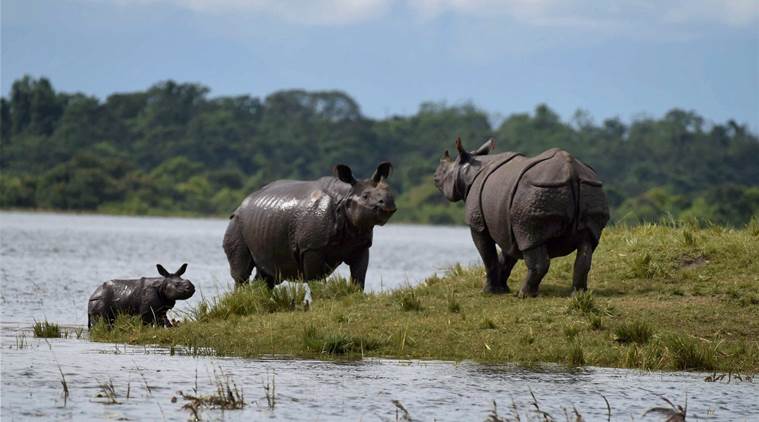China decides to shelve plans of lifting ban on trade of rhino horn, tiger parts
The shelved plan would have put India’s one-horned rhino population under increased threat from poachers. Concerns had been raised in India as well In with Assam Forest minister Parimal Suklabaidya raising concern that the decision may give a boost to rhino poachers.

Beijing had banned the trade of tiger bones and rhino horns, both prized in traditional Chinese medicine, 25 years ago as part of global efforts to halt declining animal stocks. (Source: PTI)
In a rare reversal of policy, China has decided to shelve its decision taken last month that would have legalised the use of tiger and rhinoceros parts of for certain medical and cultural purpose. The backdown comes in the backdrop of concerns raised by Chinese citizens as well as global environmentalists that the move would further put endangered wildlife at greater risk of poaching.
Indian environmentalist, as well as authorities, had also raised concerns that the new policy would have a detrimental effect on the one-horned rhino population in Assam.
Ding Xuedong, the executive deputy secretary general of the state council told the state official Xinhua News Agency that previous plan to allow the use of tiger and rhino parts in certain circumstances “has been postponed after study.”
“The Chinese government has not changed its stance on wildlife protection and will not ease the crackdown on illegal trafficking and trade in rhinos, tigers and their byproducts and other criminal activities,” Ding Xuedong, the executive deputy secretary-general of the State Council, said.
Beijing had banned the trade of tiger bones and rhino horns, both prized in traditional Chinese medicine, 25 years ago as part of global efforts to halt declining animal stocks. However last month China released new rules to allow trade of rhino horns and tiger parts for certain medical and cultural purposes.
The State Council in its notification listed four scenarios under which the use of rhino and tiger products would be legal, including scientific research, promotion of animal protection, medical research and healing, and the trade of rhino and tiger products as antiques.
Organisations like the World Wildlife Fund (WWF) had criticized the move and had said that the move to overturn the ban would have “devastating consequences globally” by allowing poachers and smugglers to hide behind legalised trade.
“With wild tiger and rhino populations at such low levels and facing numerous threats, legalised trade in their parts is simply too great a gamble for China to take,” Margaret Kinnaird, WWF wildlife practice leader, had said.
Concerns had been raised in India as well In with Assam Forest minister Parimal Suklabaidya raising concern that the decision may give a boost to rhino poachers.
“China’s recent decision is likely to negatively impact other countries as well. Our country shares a border with China and it is well known that the market for poached rhino horns is China. Practically speaking, what was a back-door activity till now might turn into a front-door practice with this decision,” Parimal Suklabaidya, state Environment and Forest minister, had said after China had lifted the ban last month.






































No hay comentarios:
Publicar un comentario